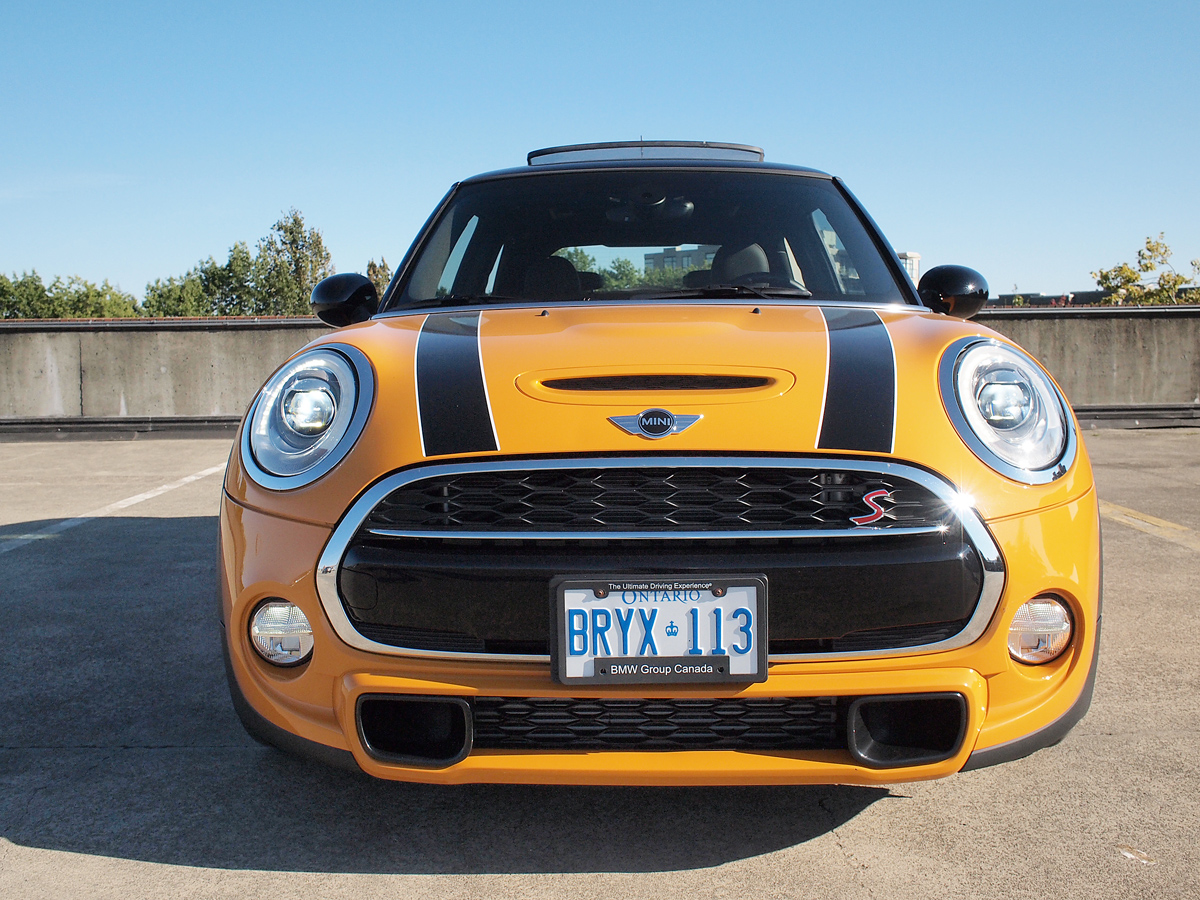What exactly does an automatic rev-matching transmission do?

The new MINI Cooper S is among a handful of cars featuring manual transmissions with automatic rev-matching. Photos by Benjamin Yong.
Anyone who has driven a conventional manual transmission should be familiar with the unpleasant sensation of shifting into a lower gear while the engine is spinning at a high rpm. It sounds something like “WHIRRRR,” while the whole car bucks and shakes more than a horse in a rodeo.
To mitigate this effect, some manufacturers such as Porsche, BMW and MINI have implemented automatic rev-matching technology in their manual transmissions. Basically, when the computer senses a lower gear change, it bumps up the engine’s revolutions-per-minute to match the optimal speed of the gear about to be engaged so the transition is smooth rather than jarring.

To understand this concept a little better, let’s talk about gearing.
Gears and speed
Each of the gears in your car has a range of engine RPMs that it operates at to allow you to travel at a certain speed. Near the top of the range is what is known as the power band, where optimum efficiency is obtained and allows for quickest vehicle acceleration. Beyond the power band, the car will no longer accelerate, which is why shifting to a higher gear is required in order to keep going faster. The rpm range then “resets” and the process is repeated.

Drivingfast.net
For example, if you are driving in third gear in the neighbourhood of 4,000 rpm, to downshift to second and maintain the same road speed the engine would need to be turning at, say, 7,000 rpm. With a conventional standard tranny, simply initiating a downshift would cause the RPMs to suddenly drop and then shoot back up, resulting in the unpleasant whirring sound and jerkiness.
Heel-and-toe
The “automatic” part of auto rev-matching refers to the fact that many car enthusiasts have long been doing this in a manual fashion utilizing a technical called heel-and-toe. When a driver anticipates a scenario where they need to slow down and shift to a lower gear, they press in the clutch as normal with their left foot. With the ball of their right foot, they squeeze the brake while using the heel of the same foot to gently push the gas pedal to bring the rpms up to match the lower gear speed.
Heel-and-toeing is particularly popular in performance driving, where a sloppy downshift can cause the vehicle to lose speed and upset its balance around a turn.
Yay or nay?

Each automaker’s version of automatic rev-matching is slightly different. In certain Porsche models, including the Boxster and Cayman GTS, enabling Sport mode activates the function. On the New Mini Cooper S equipped with the six-speed stick, it’s all rev-match all the time. Availability of such systems across brands is still the exception rather than the norm, and with the future of manual transmissions in question it’s hard to say whether the technology will catch on. Opinions of gearheads on the matter are also split: some enjoy the do-it-yourself method while others prefer the precision of a machine.
What to learn more? Chat with one of our product advisors at MINI Langley or MINI Vancouver today!

